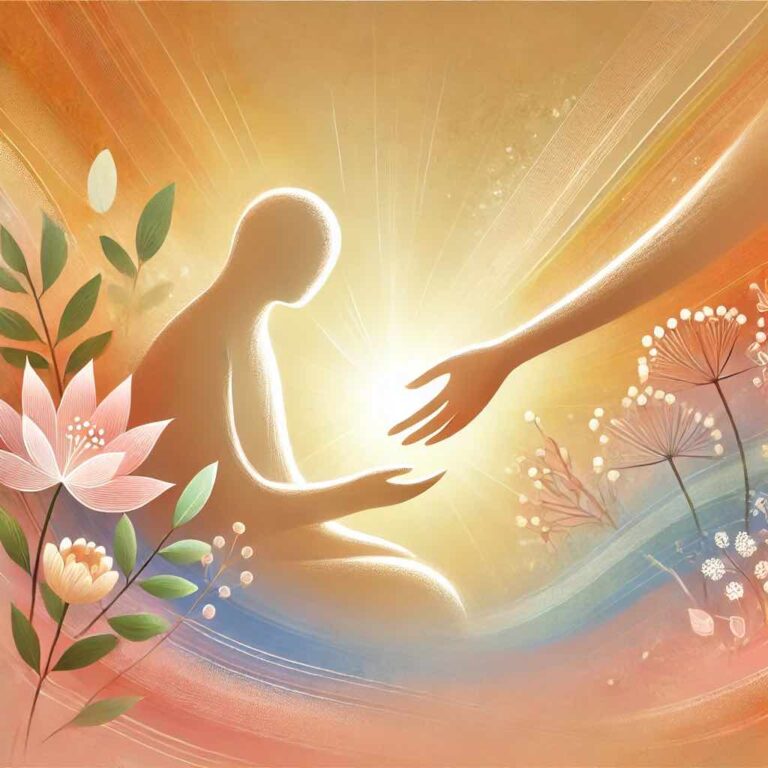
Guilt and Forgiveness
Guilt is a powerful emotion that can significantly impact our mental, emotional, and even physical well-being. It often arises when we believe we have done something wrong or failed to live up to our own or others’ expectations. While guilt can serve as a moral compass, prompting us to make amends and improve our behavior, it can also become a heavy burden if not addressed properly. Forgiveness, on the other hand, offers a transformative path to healing and liberation. This post delves into the nature of guilt, its effects, and the profound power of forgiveness, with a particular focus on self-forgiveness.
Understanding Guilt
Guilt is a complex emotion that stems from our sense of responsibility and morality. It typically occurs in two forms:
- Healthy Guilt:
This form of guilt serves as an internal alarm that signals when our actions have strayed from our values or caused harm to others. Healthy guilt encourages self-reflection, accountability, and corrective actions. - Unhealthy Guilt:
This type of guilt becomes problematic when it is disproportionate to the situation or when we hold onto it for too long. Unhealthy guilt can lead to self-condemnation, shame, and a pervasive sense of unworthiness.
Sources of Guilt:
- Personal Actions:
Guilt can arise from specific actions we have taken that we regret, such as lying, cheating, or hurting someone. - Omissions:
We may feel guilty for things we failed to do, such as not helping someone in need or neglecting our responsibilities. - Inherited Guilt:
Sometimes, we carry guilt that is not our own but is inherited from family, culture, or societal expectations.
The Effects of Guilt
When guilt is not addressed, it can have a range of negative effects on our lives:
- Emotional Impact:
Persistent guilt can lead to feelings of sadness, anxiety, and depression. It can erode our self-esteem and make us feel unworthy of love and happiness. - Mental Burden:
Guilt occupies mental space and energy, making it difficult to focus on the present and enjoy life. It can lead to obsessive thoughts and rumination. - Physical Health:
Chronic guilt can manifest in physical symptoms such as headaches, fatigue, and digestive issues. The stress associated with guilt can weaken the immune system and increase the risk of chronic illnesses. - Relationship Strain:
Guilt can strain relationships, causing us to withdraw or act defensively. It can also lead to a cycle of self-sabotage and conflict with others.
The Power of Forgiveness
Forgiveness is a powerful antidote to guilt. It is a conscious, deliberate decision to let go of feelings of resentment or vengeance toward oneself or others. Forgiveness does not mean condoning or forgetting the wrongdoing; instead, it is about releasing the emotional burden and finding peace.
Benefits of Forgiveness:
- Emotional Healing:
Forgiveness allows us to heal from the emotional wounds of guilt and resentment. It brings a sense of relief and inner peace. - Mental Clarity:
Letting go of guilt and forgiving ourselves or others frees up mental space and energy. It helps us think more clearly and make better decisions. - Improved Relationships:
Forgiveness fosters healthier relationships by reducing conflict and promoting understanding and compassion. It opens the door to reconciliation and deeper connections. - Physical Well-being:
Studies have shown that forgiveness can lead to better physical health by reducing stress, lowering blood pressure, and improving sleep quality.
Self-Forgiveness: The Greatest Challenge
While it can be relatively easier to forgive others, self-forgiveness often poses a greater challenge. This difficulty arises from our internal critic, societal pressures, and deep-seated beliefs about worthiness and perfection. According to author and psychologist Brene Brown, “Shame is the intensely painful feeling or experience of believing that we are flawed and therefore unworthy of love and belonging.” This shame can fuel our reluctance to forgive ourselves, as we feel undeserving of compassion and understanding.
Solutions for Self-Forgiveness
Understanding Self-Forgiveness:
Self-forgiveness involves recognizing our humanity and accepting that everyone makes mistakes. It is a process of self-compassion and understanding, acknowledging that we are deserving of forgiveness just as much as others.
Steps to Self-Forgiveness:
- Acknowledge the Guilt:
The first step is to acknowledge and accept your feelings of guilt. Identify the source of your guilt and understand why you feel this way. - Take Responsibility:
If your guilt is related to a specific action, take responsibility for your behavior. Acknowledge the impact of your actions on others and yourself. - Seek Understanding:
Reflect on the circumstances that led to your actions. Understand the context and any contributing factors. This can help you gain perspective and reduce self-blame. - Make Amends:
If possible, take steps to make amends for your actions. Apologize to those you have wronged and offer to make reparations. This can help repair relationships and alleviate guilt. - Practice Self-Compassion:
Treat yourself with the same compassion and understanding that you would offer to a friend. Recognize that everyone makes mistakes and that it is part of being human. - Choose to Forgive:
Make a conscious decision to forgive yourself. This decision may need to be reaffirmed over time, especially if feelings of guilt resurface. - Let Go of Resentment:
Release any lingering resentment or anger. Holding onto these emotions only prolongs your suffering. Letting go is a gift you give to yourself. - Seek Support:
If you find it difficult to forgive yourself, seek support from a therapist, counselor, or trusted friend. They can provide guidance and help you navigate the process.
Release from Guilt: Insights from “A Course in Miracles”
“A Course in Miracles” (ACIM), a spiritual self-study program, offers profound insights into the nature of guilt and the path to forgiveness. ACIM teaches that guilt is an illusion created by the ego to maintain separation from our true divine nature. According to ACIM, forgiveness is the means by which we recognize our inherent innocence and return to a state of love and peace.
Key Concepts from ACIM:
- Illusory Nature of Guilt:
ACIM posits that guilt is a product of the ego’s false perception of sin and separation from God. It teaches that in reality, we are all innocent and whole, regardless of our actions. - Forgiveness as a Path to Peace:
Forgiveness is not about excusing behavior but about seeing beyond the ego’s illusions to the truth of our divine nature. It is an act of releasing the past and embracing the present moment. - True Perception:
ACIM encourages us to shift from the ego’s perspective of judgment and condemnation to the Holy Spirit’s perspective of love and understanding. This shift in perception allows us to see ourselves and others as inherently worthy of love.
Quotes from “A Course in Miracles”:
- “Forgiveness is the key to happiness.”
- “Forgiveness recognizes what you thought your brother did to you has not occurred.”
- “Your task is not to seek for love, but merely to seek and find all the barriers within yourself that you have built against it.”
Guilt is a natural human emotion that can guide us toward better behavior and deeper self-awareness. However, when it becomes overwhelming, it can hinder our well-being and happiness. Forgiveness, particularly self-forgiveness, is a powerful tool that enables us to release the burden of guilt and find healing. By acknowledging our guilt, taking responsibility, and choosing to forgive, we can transform our lives and experience greater peace and fulfillment.
“A Course in Miracles” offers profound insights into the nature of guilt and the path to forgiveness, emphasizing that guilt is an illusion and that forgiveness is the means to recognize our inherent innocence. As we embrace forgiveness, we open our hearts to love, compassion, and the possibility of a brighter future.
Ultimately, forgiveness is a journey that requires patience and persistence. It is a process of letting go, healing, and moving forward. By forgiving ourselves and others, we can experience liberation from the chains of guilt and step into a life of peace, joy, and unconditional love.
Coach G, Dubai's Life Coach, combines ancient wisdom and quantum psychology to help you unlock your true potential and live your most empowered life.
From Our Blog
Share:
Categories
- A Course in Miracles - Weekly Study Guide 2
- Ancient Wisdom 16
- Book Summaries 20
- Coach G's Journal 65
- Conscious Motherhood 4
- Conscious Pregnancy 2
- Conscious Women 28
- Gloria’s Journal 6
- Life Coaching 84
- Marriage & Relationship 22
- Parenting 7
- Productivity 11
- Quantum Psychology 80
- Self-Improvement 107
- Spirituality 64
- Top Business Coaching Strategies 9
Popular Posts
When Letting Go of Hope Can Actually Save You
Tags
Useful Links
Quick Menu
Contact Us
- +971585541780
- info@coach-g.com
- Al Murjan tower, Al Marsa Street Dubai Marina











